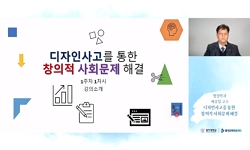연구의 목적은 한일전통시장의 활성화정책과 관련된 법적 제도적 변천과정 비교를 통해 시사점 도출이다. 첫째, 일본 전통시장정책은 1980년대 이전까지 공간개념의 도시계획정책, 주민의식...
http://chineseinput.net/에서 pinyin(병음)방식으로 중국어를 변환할 수 있습니다.
변환된 중국어를 복사하여 사용하시면 됩니다.
- 中文 을 입력하시려면 zhongwen을 입력하시고 space를누르시면됩니다.
- 北京 을 입력하시려면 beijing을 입력하시고 space를 누르시면 됩니다.
https://www.riss.kr/link?id=A106771358
- 저자
- 발행기관
- 학술지명
- 권호사항
-
발행연도
2020
-
작성언어
Korean
- 주제어
-
자료형태
학술저널
-
수록면
1-13(13쪽)
- 제공처
-
0
상세조회 -
0
다운로드
부가정보
국문 초록 (Abstract)
연구의 목적은 한일전통시장의 활성화정책과 관련된 법적 제도적 변천과정 비교를 통해 시사점 도출이다. 첫째, 일본 전통시장정책은 1980년대 이전까지 공간개념의 도시계획정책, 주민의식 수용, 그리고 2000년대 이 후부터는 전통시장정책에서 사회적 유효성과 사회적 편익을 강조하는 혁신정책으로 전환되면서 전통시장의 다양한 이해관계자의 의견수렴과 가치관을 수용하는 비경제적 요소로서 사회적경제 개념을 본격적으로 도입 하기 시작했다. 둘째, 한국 전통시장정책의 사회적경제와의 접점은 2000년대 이후 본격화 되었다. 특히 2001 년 정부가 재래시장 시설개선지원사업을 추진하면서 2002년 재래시장활성화 특별조치법이 제정되어 전통시 장활성화사업이 활기를 띠기 시작했다. 셋째, 한국과 일본의 전통시장정책과 사회적경제와의 연계를 통한 전 통시장 활성화정책의 시행은 지역공동화로 인한 도시쇠퇴현상과 맞물려 전개되었다. 결론적으로 한일양국의 전통시장정책은 최근에 전통시장정책의 한계에 직면하여 이를 한일 간 사회구조적인 지역쇠퇴 문제로 접근 하여 근본적인 혁신을 도모하기 위한 사회적경제 개념을 도입하고 있는 것이다.
다국어 초록 (Multilingual Abstract)
The purpose of this study is to analyze the policy development process of Korean traditional market in terms of social economy and to draw out the differences and implications. This study examined the fundamental differences and causes of legal and in...
The purpose of this study is to analyze the policy development process of Korean traditional market in terms of social economy and to draw out the differences and implications. This study examined the fundamental differences and causes of legal and institutional changes related to the Korean and Japanese traditional market activation policies. First, the traditional market policy of Japan was carried out by the concept of social economy accepting the residents' consciousness. Second, the Korean traditional market policy has been striving to improve the law to realize the modernization policy of the distribution market until the 1980s. Third, the link between the traditional market policy of Korea and Japan and the social economy has been developed in conjunction with the decline of the city due to regional hollowing. Fourth, according to the socio-cultural environment, the traditional market policies of Korea and Japan show fundamental differences in merchant support demand and support role such as social relation capital, will to succeed the business. In conclusion, the traditional market policies of Korea and Japan have focused on market activation policies due to changes in distribution structure.
목차 (Table of Contents)
- 요약
- ABSTRACT
- Ⅰ. 서론
- 2. 선행연구 검토 및 이론적 배경
- 3. 일본정부의 전통시장정책분석
- 요약
- ABSTRACT
- Ⅰ. 서론
- 2. 선행연구 검토 및 이론적 배경
- 3. 일본정부의 전통시장정책분석
- 3.1 고도경제성장기(1950-1973년)
- 3.2 저성장기와 버블경제기(1973년-1990년)
- 3.3 버블붕괴이후부터 현재(1990년 이후-현재)
- 4. 한국정부의 전통시장정책분석
- 4.1 해방이후 유통산업근대화정책(1950년-1980년)
- 4.2 유통산업발전법과 재래시장 특별법의 제정(1990년대 이후)
- 4.3 전통시장활성화사업 추진(2010년대 이후)
- 4.4 한일 전통시장정책의 사회적경제 개념 연계와도입과정 비교
- 5. 결론 및 시사점
- <참고문헌>
동일학술지(권/호) 다른 논문
-
- 한국전통시장학회
- 박재수
- 2020
-
- 한국전통시장학회
- 김찬호
- 2020
-
- 한국전통시장학회
- 박정용
- 2020
-
2020년 한국전통시장학회 간담회 - 전통시장 미래생존전략 -
- 한국전통시장학회
- 이덕훈
- 2020





 eArticle
eArticle






